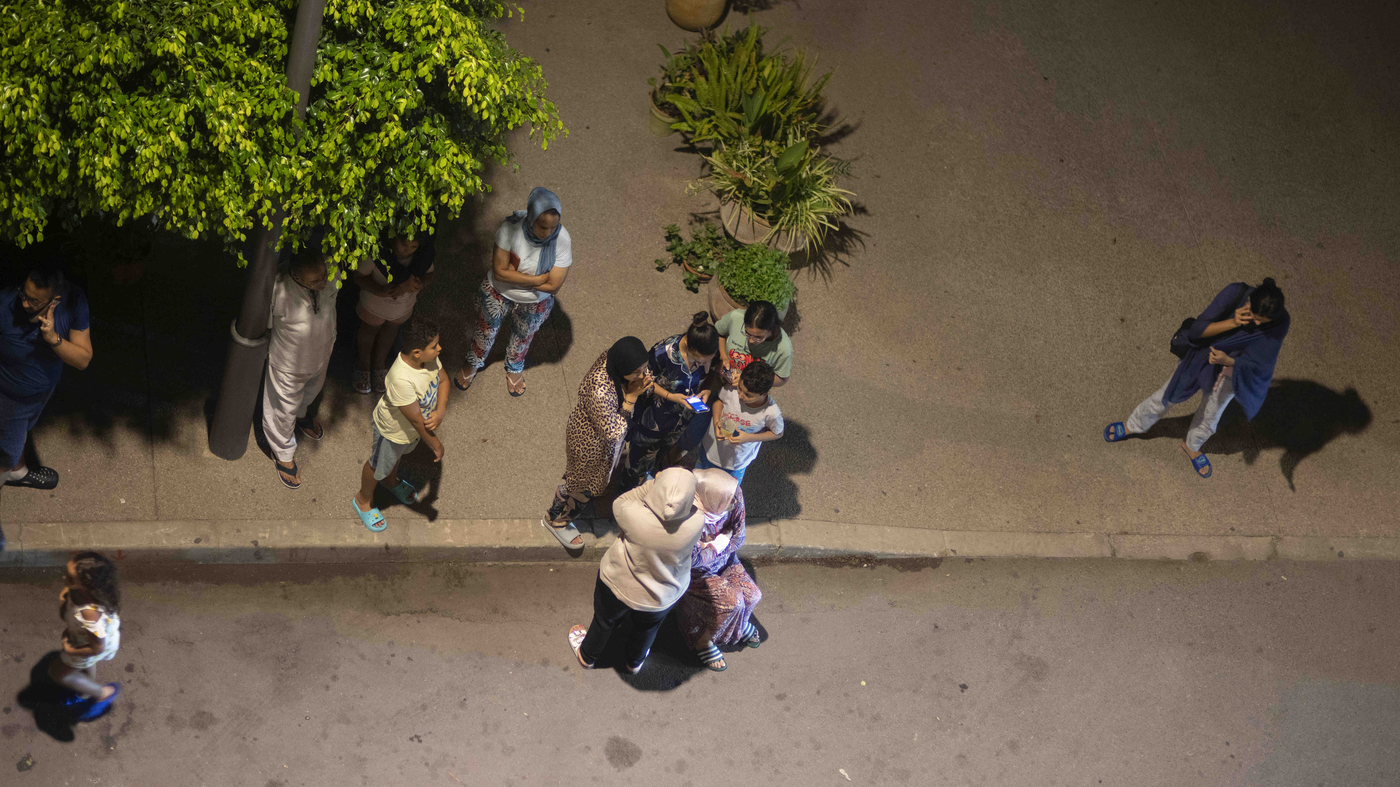U.S. Geological Survey and Morocco response aftershocks from Friday’s high-energy earthquake in the Atlas Mountains, South of Marrakech
The U.S. Geological Survey said the quake had a preliminary magnitude of 6.8 when it hit at 11:11 p.m. (2211 GMT), with shaking that lasted several seconds. Morocco’s National Seismic Monitoring and Alert Network measured it at 7 on the Richter scale. The magnitude-5.9 aftershock was reported 19 minutes later by the US agency.
Moroccans posted videos showing buildings reduced to rubble and dust, and parts of the famous red walls that surround the old city in Marrakech, a UNESCO World Heritage site, damaged. Some people posted videos of people screaming and running from restaurants as club music played in the city.
Rather than return to concrete buildings, men, women and children stayed out in the streets worried about aftershocks and other reverberations that could cause their homes to sway.
The epicenter of Friday’s tremor was high in the Atlas Mountains roughly 70 kilometers (43.5 miles) south of Marrakech. It is near the Oukaimeden ski resort and the highest peak in North Africa.
The USGS said the epicenter was 18 kilometers (11 miles) below the Earth’s surface, while Morocco’s seismic agency put it at 8 kilometers (5 miles) down.
As of early Saturday, no information had been published about casualties or damages from either the Moroccan officials or the MAP news agency. Government officials typically use the agency to communicate information about important matters.
The quake was felt as far away as Portugal and Algeria, according to the Portuguese Institute for Sea and Atmosphere and Algeria’s Civil Defense agency, which oversees emergency response.
Unravelling the horror of the high Atlas Mountains with the aftermath of the 2006 earthquake: a 22-year-old woman in Amizmiz is in desperate need of help
Mr. Kourkouz said he had been having dinner late on Friday when he felt a slight tremor. For a moment, he thought it was the vibrations of his washing machine. But the shaking became worse in a hurry.
Mr. Kourkouz said theAdrenaline took over. He rushed out of his fourth-floor apartment, down the stairs and into the street, where other residents had gathered.
Raja Bouri, 33, who lives on the outskirts of Marrakesh, said that her walls had withstood the quake but that everything in her kitchen had fallen to the floor.
Jihane, a 36-year-old woman, said she felt fear and confusion when the shaking started in AGADIR, a town on the Atlantic coast west of the epicenter.
“My husband and four children died,” one woman told Moroccan state television. Mustapha, Ilhem, Ghizlaine, Ilyes. I don’t have anything left. I am not with anyone else.
As the death toll continued to climb on Saturday and rescue workers scrambled to find survivors in the rubble, it became painfully clear that many had not made it through the night.
She and her mother slept outside, a choice that many residents in towns and cities near the earthquake’s epicenter, in the High Atlas Mountains, also made amid fears of aftershocks.
Her kitchen sink and stove became a hive of debris and dust after the shaking cracked the walls and sent chunks of ceiling tumbling to the floor.
“I felt terrorized,” said Ms. Bennani, 38, a journalist who, like many people in the area, lives in a house made of clay bricks. “I ran out of my room screaming, asking my mother to leave.”
In Amizmiz, a town about 30 miles southwest of Marrakesh that is near the epicenter, Yasmina Bennani was about to go to sleep on Friday night when she heard a loud noise.
